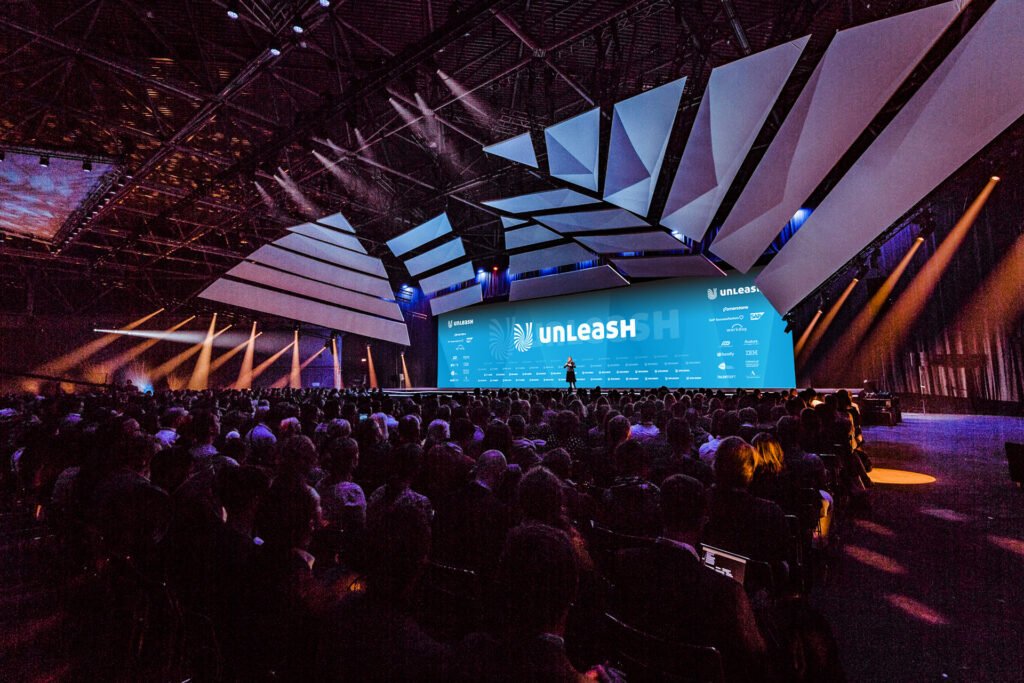Ahead of UNLEASH World Conference & Expo 2018, we spoke to Ambros Scope, Head of Future Workforce Engineering, AXA about his exciting AI-based work that supports employees with their personal career development. Ambros will be presenting on this topic on Day 1 of the conference (23rd of October) at 14.30 on the Talent Management stage.

Becky Norman, Editor, HRZone: Firstly, what has ‘HAIR’ got to do with the future of work?
Ambros Scope, Head of Future Workforce Engineering, AXA: HAIR is an acronym for my current focus at work: embedding AI within HR.This is relevant for a few reasons.
First, AI is becoming increasingly important for every job and every employee simply because it is transitioning from a high tech application into a commodity. AI is becoming better and cheaper every day, so every employee should think about their personal augmentation strategy.
For example, how do they want to work together with ‘robots’ in the future? Do they want to avoid it, accept it or push it forward?
The second reason for HAIR’s work is that no human career advisor is able to have an overview of all the new jobs and skills that come up every day. And no human coach can match a person’s personal skill profile with this universe of new jobs and skills.
Therefore we need to stop being afraid of AI as a job killer and instead use it as a tool to guide and develop personal careers.
Becky Norman, Editor, HRZone: Does your focus on embedding AI within HR align with making workplaces more human-focused?
Ambros Scope, Head of Future Workforce Engineering, AXA: Yes, definitely. We started this approach because we were looking for new ways of answering important questions asked by employees. For example, can a robot do my job? How suited am I to internal mobility? Which other jobs match my personal skill profile? What is the best training for me?
This is not science fiction – it is happening right now as we speak.
Our AI-based ‘Virtual Career Assistants’ can also help employees find new opportunities based not only on their skills but also on their interests. We are also looking into AI that matches a person’s character with corporate culture. This approach ensures that workers are not only able to perform in a new job but that they like working there as well.
Becky Norman, Editor, HRZone: In what ways is the role of HR changing as we enter into a period of uncertainty?
Ambros Scope, Head of Future Workforce Engineering, AXA: I agree with Tom Lamberty from Cisco who describes three paradigm shifts: from planning to intelligence, from efficiency to agility and from individual to teams.
HR needs to create immediate value for managers and employees in a VUCA world. Long-term planning exercises to increase efficiency of individuals are not compatible with current challenges anymore. Internal Mobility is becoming more and more important because fast-changing demands from our customers need fast-adapting teams within our companies.
In 1970 you had one job. In 2000 you could expect 10 jobs in your life. In 2030 you should expect 10 jobs per day. We are working on AI systems that can handle this massive matching challenge.
Becky Norman, Editor, HRZone: Can you provide some practical examples of how smart data is being used to prepare the workforce for upcoming challenges?
Ambros Scope, Head of Future Workforce Engineering, AXA: One of our teams has no human members; it consists only of several AI systems. Our employees can ask one of these ‘Virtual Career Assistants’ to read their CV, create a skill profile and match their skills with every role and every open position within AXA.
AI is like the steam engine, electricity or computers. All of these technologies created uncertainty in the beginning and lots of new jobs in the end.
It can also tell an employee which skills are matching and which skills are missing, and then guide the individual to its (virtual) colleague who helps them find the right training.
This is not science fiction – it is happening right now as we speak. I will be presenting more examples like this at UNLEASH in Amsterdam soon.
Becky Norman, Editor, HRZone: What scares you most about the future of work?
Ambros Scope, Head of Future Workforce Engineering, AXA: I think that there is nothing to fear other than fear itself. AI is like the steam engine, electricity or computers. All of these technologies created uncertainty in the beginning and lots of new jobs in the end.
Everybody who is willing to look for opportunities will find them. But if you’re afraid and avoid or neglect it, it won’t get easier for you.
Becky Norman, Editor, HRZone: And what excites you most about it?
Ambros Scope, Head of Future Workforce Engineering, AXA: Imagine a world where everybody can do not only what they are best at but also what they aspire to do. The opportunity to push the world of work a bit closer to that vision is what excites me the most when we try to put AI into HR.







3 responses
AI is indeed a technology
AI is indeed a technology that isn’t uncommon anymore amongst businesses as well as individuals alike. It is to our own disadvantage if we fail to utilize this highly sought-after tech if we already have the necessary resources ready. Regardless of the department that we wish to employ AI to, we need to ensure that we will indeed be reaping more benefits than the resources we would need to invest on.
While I can foresee that
While I can foresee that automated and AI services will be the next level in service provision for the HR industry, I don’t think that it’s a cure-all solution. We have to make sure that we still keep tabs on the human touch, and have real live people waiting to come out of storage if a more personal approach is required.
Great discussion!
Great discussion!